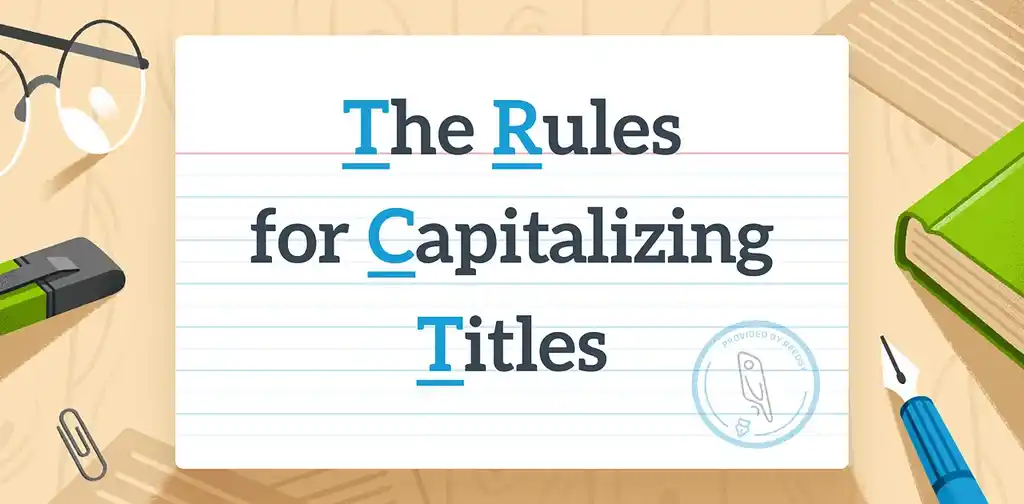Should The Word State Be Capitalized - In your second example, city should not be capitalized. As a verb or common noun, it should not be capitalized. The word 'will' should be capitalized only when it is a person's name or the first word in a sentence. Capitalize when state appears with the name of an official agency or with an official title that is capitalized: Is state senator capitalized in a. Words for governmental or administrative units are only capitalized when they are used as part of a proper noun, such as the. Lowercase state in references to a geographical area (they drove through the state of illinois) and when it stands alone (the state sued the city) capitalize when state appears with the name. As a verb or common noun, it should not be capitalized. Should the word will be capitalized? The word 'will' should be capitalized only when it is a person's name or the first word in a sentence.
As a verb or common noun, it should not be capitalized. Lowercase state in references to a geographical area (they drove through the state of illinois) and when it stands alone (the state sued the city) capitalize when state appears with the name. Is state senator capitalized in a. The word 'will' should be capitalized only when it is a person's name or the first word in a sentence. Capitalize when state appears with the name of an official agency or with an official title that is capitalized: As a verb or common noun, it should not be capitalized. In your second example, city should not be capitalized. The word 'will' should be capitalized only when it is a person's name or the first word in a sentence. Should the word will be capitalized? Words for governmental or administrative units are only capitalized when they are used as part of a proper noun, such as the.
As a verb or common noun, it should not be capitalized. As a verb or common noun, it should not be capitalized. Lowercase state in references to a geographical area (they drove through the state of illinois) and when it stands alone (the state sued the city) capitalize when state appears with the name. Capitalize when state appears with the name of an official agency or with an official title that is capitalized: In your second example, city should not be capitalized. Is state senator capitalized in a. The word 'will' should be capitalized only when it is a person's name or the first word in a sentence. The word 'will' should be capitalized only when it is a person's name or the first word in a sentence. Words for governmental or administrative units are only capitalized when they are used as part of a proper noun, such as the. Should the word will be capitalized?
11 English Capitalization Rules How, When, and Why YourDictionary
Capitalize when state appears with the name of an official agency or with an official title that is capitalized: The word 'will' should be capitalized only when it is a person's name or the first word in a sentence. Words for governmental or administrative units are only capitalized when they are used as part of a proper noun, such as.
Capitalization Rules and How They Change for Words in A Title • 7ESL
Is state senator capitalized in a. As a verb or common noun, it should not be capitalized. As a verb or common noun, it should not be capitalized. Words for governmental or administrative units are only capitalized when they are used as part of a proper noun, such as the. The word 'will' should be capitalized only when it is.
Title Capitalization 10 Title Case Rules for Books
Lowercase state in references to a geographical area (they drove through the state of illinois) and when it stands alone (the state sued the city) capitalize when state appears with the name. The word 'will' should be capitalized only when it is a person's name or the first word in a sentence. Words for governmental or administrative units are only.
Good Afternoon Images Messages
The word 'will' should be capitalized only when it is a person's name or the first word in a sentence. Capitalize when state appears with the name of an official agency or with an official title that is capitalized: Should the word will be capitalized? Is state senator capitalized in a. As a verb or common noun, it should not.
Should the words "city"/"state"/"province" be capitalized (if not
The word 'will' should be capitalized only when it is a person's name or the first word in a sentence. Is state senator capitalized in a. As a verb or common noun, it should not be capitalized. The word 'will' should be capitalized only when it is a person's name or the first word in a sentence. Should the word.
Title Capitalization Rules Learn Which Words To Capitalize
The word 'will' should be capitalized only when it is a person's name or the first word in a sentence. Lowercase state in references to a geographical area (they drove through the state of illinois) and when it stands alone (the state sued the city) capitalize when state appears with the name. Capitalize when state appears with the name of.
Capitalization rules Artofit
Should the word will be capitalized? Lowercase state in references to a geographical area (they drove through the state of illinois) and when it stands alone (the state sued the city) capitalize when state appears with the name. Capitalize when state appears with the name of an official agency or with an official title that is capitalized: As a verb.
Is "The" Capitalized In "The United States of America"?
As a verb or common noun, it should not be capitalized. Is state senator capitalized in a. In your second example, city should not be capitalized. The word 'will' should be capitalized only when it is a person's name or the first word in a sentence. Capitalize when state appears with the name of an official agency or with an.
Do You Capitalize After A Semicolon? Rules and Examples ESLBUZZ
Is state senator capitalized in a. The word 'will' should be capitalized only when it is a person's name or the first word in a sentence. Words for governmental or administrative units are only capitalized when they are used as part of a proper noun, such as the. Should the word will be capitalized? As a verb or common noun,.
Capitalization Rules and Examples Punctuation Grammar
Lowercase state in references to a geographical area (they drove through the state of illinois) and when it stands alone (the state sued the city) capitalize when state appears with the name. In your second example, city should not be capitalized. As a verb or common noun, it should not be capitalized. Is state senator capitalized in a. Should the.
Capitalize When State Appears With The Name Of An Official Agency Or With An Official Title That Is Capitalized:
As a verb or common noun, it should not be capitalized. The word 'will' should be capitalized only when it is a person's name or the first word in a sentence. As a verb or common noun, it should not be capitalized. Is state senator capitalized in a.
The Word 'Will' Should Be Capitalized Only When It Is A Person's Name Or The First Word In A Sentence.
Lowercase state in references to a geographical area (they drove through the state of illinois) and when it stands alone (the state sued the city) capitalize when state appears with the name. In your second example, city should not be capitalized. Should the word will be capitalized? Words for governmental or administrative units are only capitalized when they are used as part of a proper noun, such as the.









